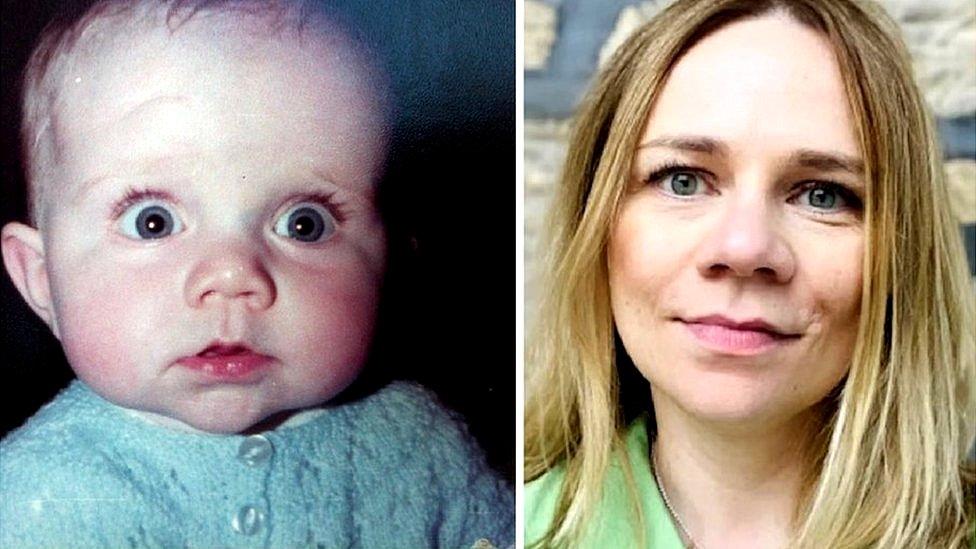Five-minute test gave Hertfordshire parents more time with daughter
- Published
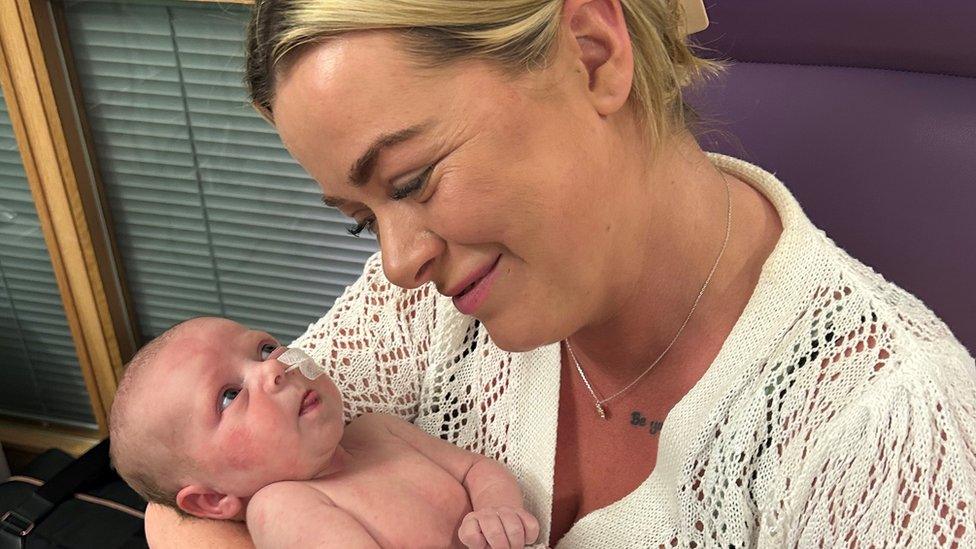
Emma gave birth to Daisy on 19 June 2023 at Lister Hospital, Stevenage
A mother said a special heart defect trial gave her family more time with her baby before her death at just 12 weeks.
Emma Hart said Daisy, who had multiple heart abnormalities, would have otherwise died within 48 hours.
She was offered a "pulse oximetry" for Daisy at the Lister Hospital, in Stevenage, when she was born on 19 June last year.
She said it allowed them time to "learn who she was and build that love".
A pulse oximetry measures a baby's oxygen levels, but is not currently part of the routine screening programme in the UK.
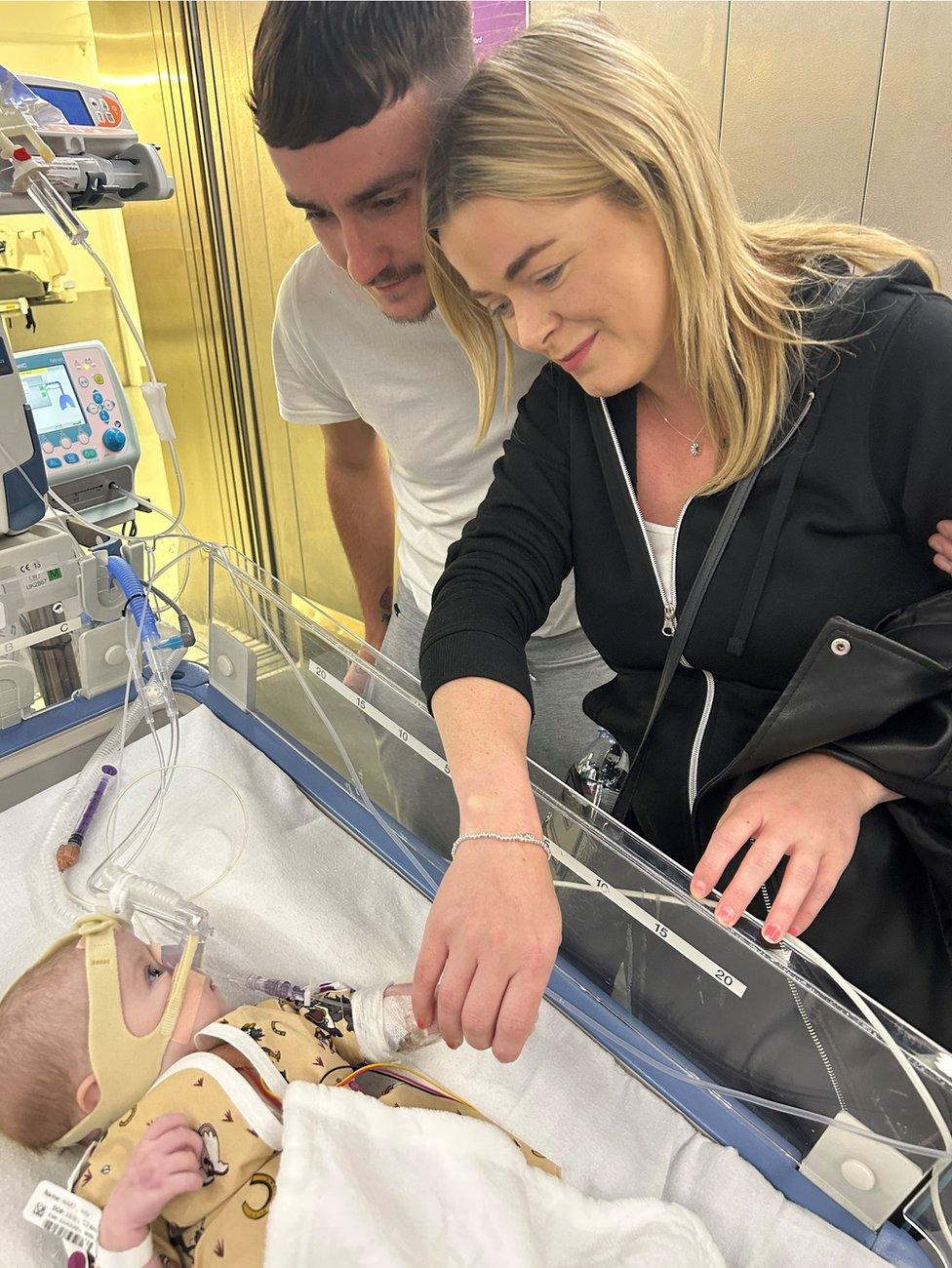
Emma Hart said Daisy was "so strong" and she and her partner, Ronnie, were able to spend several weeks with her
Miss Hart, 33, from Watton at Stone, Hertfordshire, said: "As devastating as the time was, and as hard as it was, if I hadn't have had that three months with her, I think, weirdly, things could be a lot worse.
"If we had only had her for two days and to lose her so drastically, without knowing anything, it meant we had three months to learn who she was, and be with her, and build that love, which was such a beautiful thing.
"We were grateful for that test as it gave us more time. If they hadn't have done the test she would have died within 48 hours."
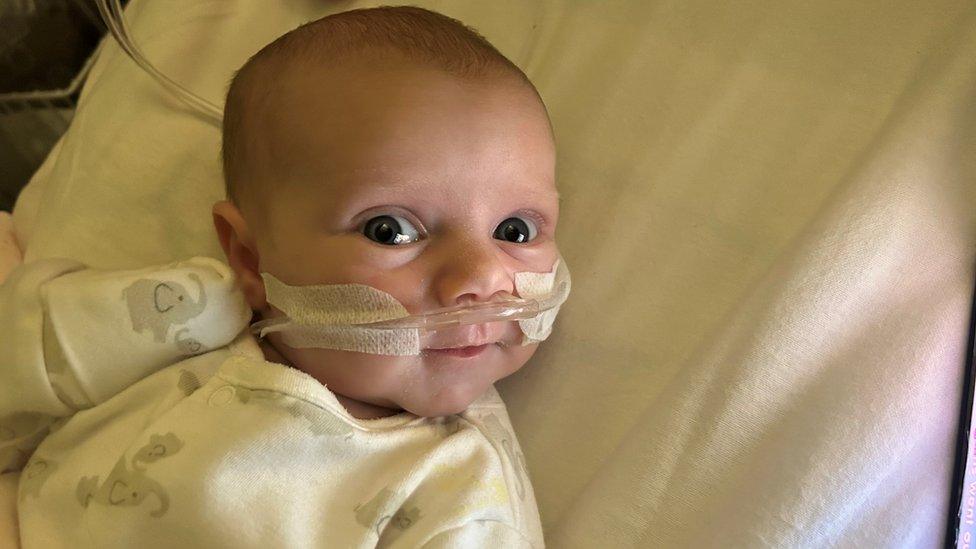
Emma said baby Daisy was a "cheeky little soul"
Miss Hart now wants the test to be made available to every child at birth, as a lasting legacy to her daughter.
Provision would have to be approved by the National Screening Committee (NSC).
"That child deserves every chance of life - and this test isn't invasive. It's a five minute test and it would literally save a lot of babies' lives," she said.
"I think it's mad to think that hospitals wouldn't just have that in place already.
"It could save so many babies' lives."
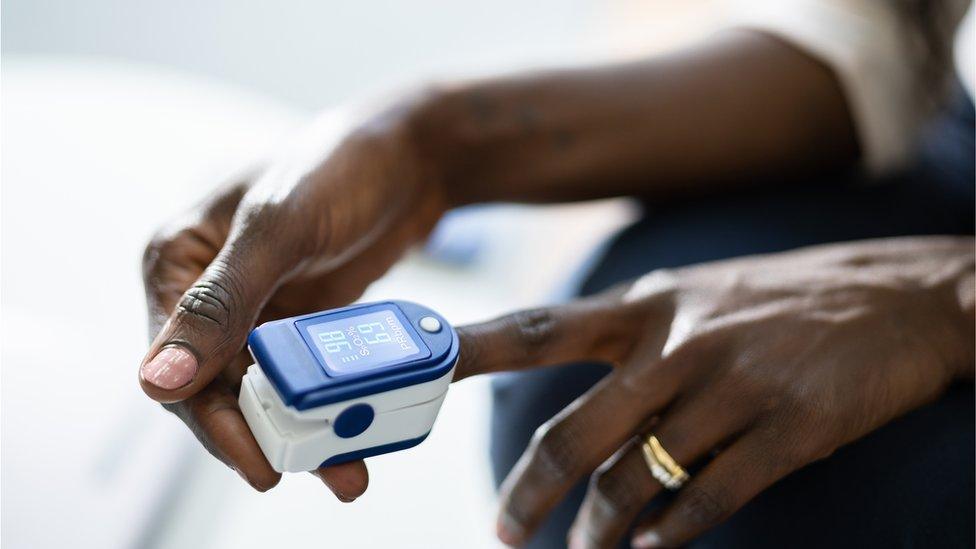
A pulse oximeter measures levels of oxygen and a test takes just five minutes
She said when Daisy was born she had a "completely normal" pregnancy.
There were no issues at birth and the pulse oximeter test was only provided as part of a trial, she added. Daisy was transferred to Great Ormond Street Hospital in London within hours of an alarm activated on the test.
Several heart abnormalities were discovered, and she had a "quarter of a heart working", Miss Hart said.
"At first there was hope around her."

Daisy underwent heart surgery but, Miss Hart said it was just a "temporary fix and they couldn't do a full fix, because she was so little".
She died at home in her mother's arms on 10 September.
East and North Hertfordshire NHS Trust, which runs the Lister Hospital, said its thoughts were with Emma's parents.
"We are pleased that the pulse oximetry screening allowed Emma and Ronnie more time with Daisy - this has been in place at Lister Hospital since June 2023 in our maternity and neonatal services," it said.
A Department of Health and Social Care (DHSC) spokeswoman said the NSC took the issue of pulse oximetry very seriously, and ran a consultation to establish the effects of screening all babies for low oxygen, the results of which were "inconclusive".
"The UK NSC supported the call for further research to be undertaken before it reviews this issue," she said.
"This is ongoing, and the results are eagerly awaited."

Follow East of England news on Facebook, external, Instagram, external and X, external. Got a story? Email eastofenglandnews@bbc.co.uk, external or WhatsApp 0800 169 1830
- Published16 February 2024

- Published4 February 2024
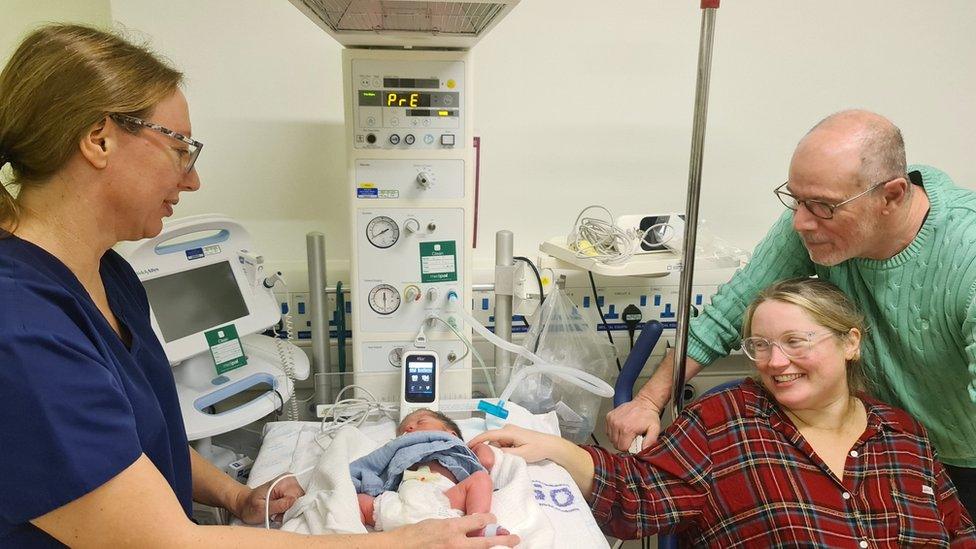
- Published18 January 2023
